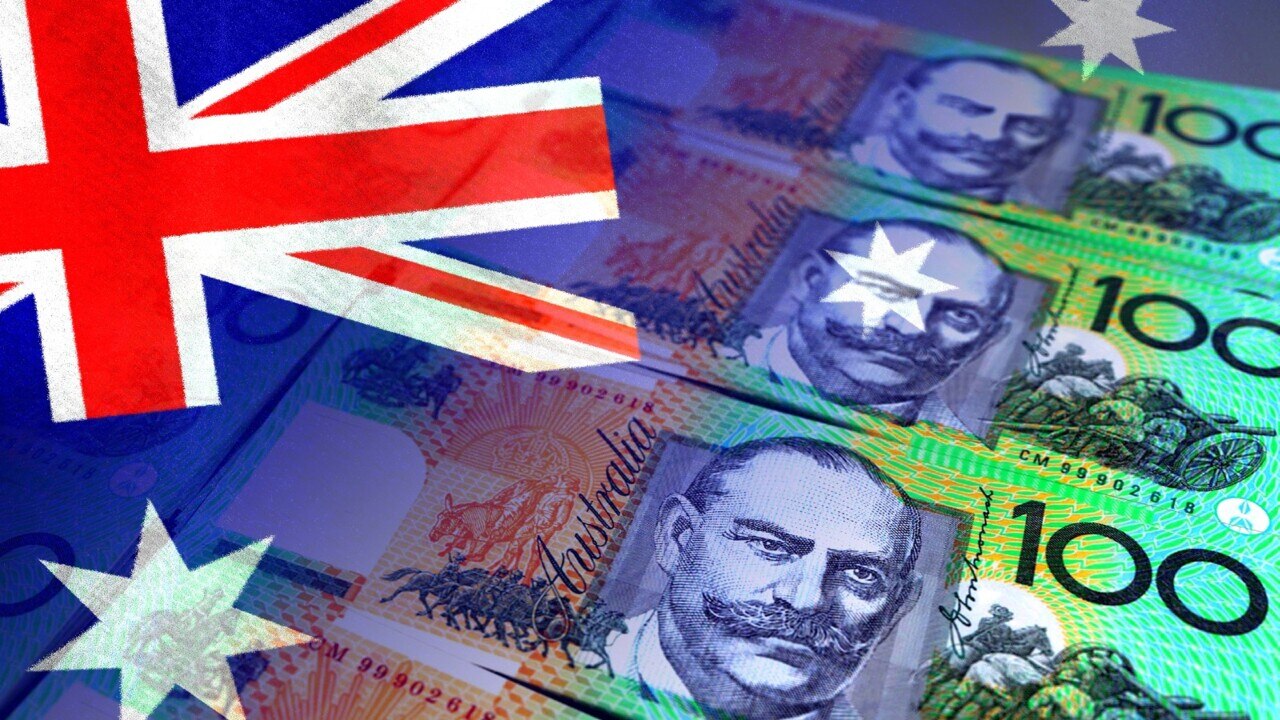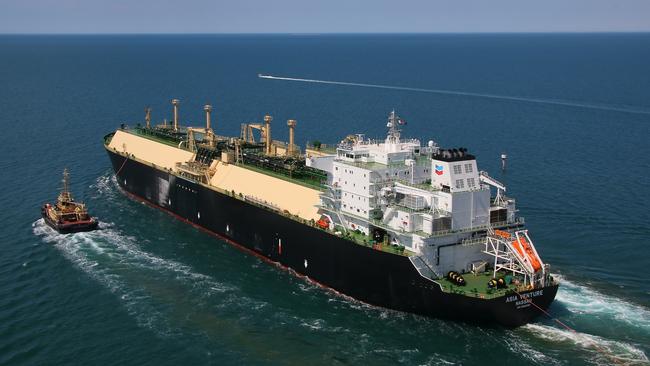Chevron and unions hold mediation talks as strikes set to escalate
Authorities are desperately hoping to resolve industrial action ahead of strikes escalating to rolling 24-hour periods that threaten about 7 per cent of global supplies.

Business
Don't miss out on the headlines from Business. Followed categories will be added to My News.
Chevron and unions have held another round of mediation talks as authorities desperately seek to resolve industrial action ahead of strikes escalating to rolling 24-hour periods that threaten about 7 per cent of global supplies.
Chevron and the Offshore Alliance, a collaboration of two unions representing energy workers, were ordered to resume mediation talks by the Fair Work Commission ahead of the industrial relations tribunal meeting again on September 22. The tribunal will then hear the gas giant’s request for an intractable bargaining declarations for the Gorgon and Wheatstone downstream facilities. Chevron has already made similar requests in relation to its Wheatstone platform.
It is not clear whether the Fair Work Commission will grant the request, and the Offshore Alliance has said it will oppose efforts by Chevron to use the legal tactic – which experts said has not been used in such scenarios before.
Even if the Fair Work Commission does agree to Chevron’s request, it remains uncertain when the tribunal would rule – prolonging industrial action that is about to escalate.
Unions have said they may on Thursday begin rolling strikes of up to 24 hours a day for up to two weeks. Unions have in recent days been using strikes lasting up to 11 hours each day.

Unions and Chevron have failed to reach agreement on a range of issues including pay, job security, rosters, transfers to other Chevron work sites, training standards and travel arrangements.
Despite weeks of talks, both sides said they remain well apart in negotiations.
“Chevron had belligerently refused to agree to employment standards which the Union has negotiated in other Enterprise Agreements with other oil and gas operators and contractors,” the Offshore Alliance said.
“But now the Offshore Alliance and our members have commenced exercising our lawful workplace rights to take Protected Industrial Action, Chevron are squealing like stuck pigs.”
Attention will now turn to the impact of the strikes. Sources familiar with Chevron’s plans said the gas company is well-placed to minimise the impact, with non-unionised workers set to play a critical role.
Chevron hopes that non-unionised staff can maintain so-called steady state production. The threat to production would come if issues arise and staffing levels at the time are unable to respond accordingly, which would then force production curtailment.
Energy analyst Saul Kavonic said Chevron and unions are engaged in a delicate posturing, with both sides seeking maximum leverage without undercutting their objectives.
“We expect the unions will seek ways to reduce LNG supply without impacting domestic gas,” said Mr Kavonic.
“The WA Government is likely to intervene if domestic gas supply is impacted, and it has the legal avenues to do so. The unions also want to sustain domestic supply, but Chevron claims domestic supply cannot be maintained without also supporting LNG supply, given the integrated way LNG and domestic gas is produced.”
With the prospect of unions moving to curtail LNG shipments, European benchmark gas prices continue to rise. Gas futures rallied more than 13 per cent last Friday when strikes began as traders worried about the region being unable to meet their demand requirements should Asian buyers – the traditional customers of Chevron in WA – be forced to see alternative markets.
Consultancy EnergyQuest said Japanese buyers are most exposed to production-impacting strikes at Chevron, estimating 16 per cent of its supplies comes from Chevron alone.
If Japanese buyers are forced to seek alternative cargoes, global gas prices will rise.
Fitch Ratings said they expected only a modest impact on prices as Europe is well positioned and recent unseasonable hot weather dents demand for heating.
“The strikes come during a period of lower demand in Europe, while high levels of utilisation of European gas storage should help cushion the longer-term impact of the strikes on European gas prices.,” Fitch said.
Soaring global gas prices were a critical driver of Europe’s fuel crisis, when governments were forced to impose a cap on bills amid warnings thousands of people would be driven into poverty.
Analysts said there was less immediate threat to domestic supplies as unions were desperate for the WA to intervene and end strikes, though the state government remains on edge.
Domestic shortfalls will be extremely concerning for WA, which uses significant quantities in electricity production.
Chevron’s two facilities are responsible for about half of Western Australia’s domestic gas supply.
WA has in recent months endured a chaotic period with a spate of coal power station outages and an uptick in demand.
More Coverage
Originally published as Chevron and unions hold mediation talks as strikes set to escalate





